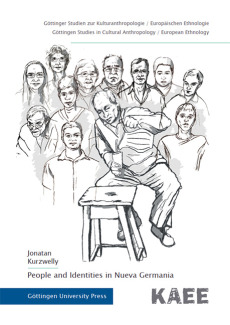Jonatan Kurzwelly
People and Identities in Nueva Germania
Reihe: European EthnologyNueva Germania, a rural Paraguayan settlement, was founded at the end of the nineteenth century as a racist, eugenic, and anti-Semitic project. Its founders, Bernhard Förster and Elisabeth Nietzsche, hoped to create the nucleus for a new Germanic empire far away from Jewish influence. This history is often used to portray present-day inhabitants of Nueva Germania through a reductive prism of events long past. Nueva Germania is, however, a place where different identities and ways of life intertwine, providing an excellent historical and ethnographic point of departure. This book argues that social identities—such as nationality, ethnicity, or race—are best understood as things we do and stories we tell, rather than things we are. The illusory sense that identities constitute fixed and essential characteristics of people can partially be explained through the significance attributed to identities in the process of generating a sense of a continuous and persistent self. By elaborating on this link between social and personal identities this book elucidates the basis for an anti-essentialist theory. Contesting essentialist and identitarian modes of thought is an urgent undertaking not only in social theory, but also as a political act in the context of the global rise of movements and ideologies that prey on such logic. The book’s additional novelty lies in the collaborative research on which it is based. Twelve participants tell stories from their lives which they themselves considered to be important, using words and photographs as the vehicles of their communication. Some elements of these stories are analysed in the theoretical chapters, while other aspects are left to speak for themselves. This methodological and ethical choice breaks with the conventional imposition of a singular scholarly lens. The polyphony of voices introduces Nueva Germania as inherently constituted from different perspectives. This approach transcends identitarian interpretations and proposes a way by which the social sciences might move beyond essentialist identities.

